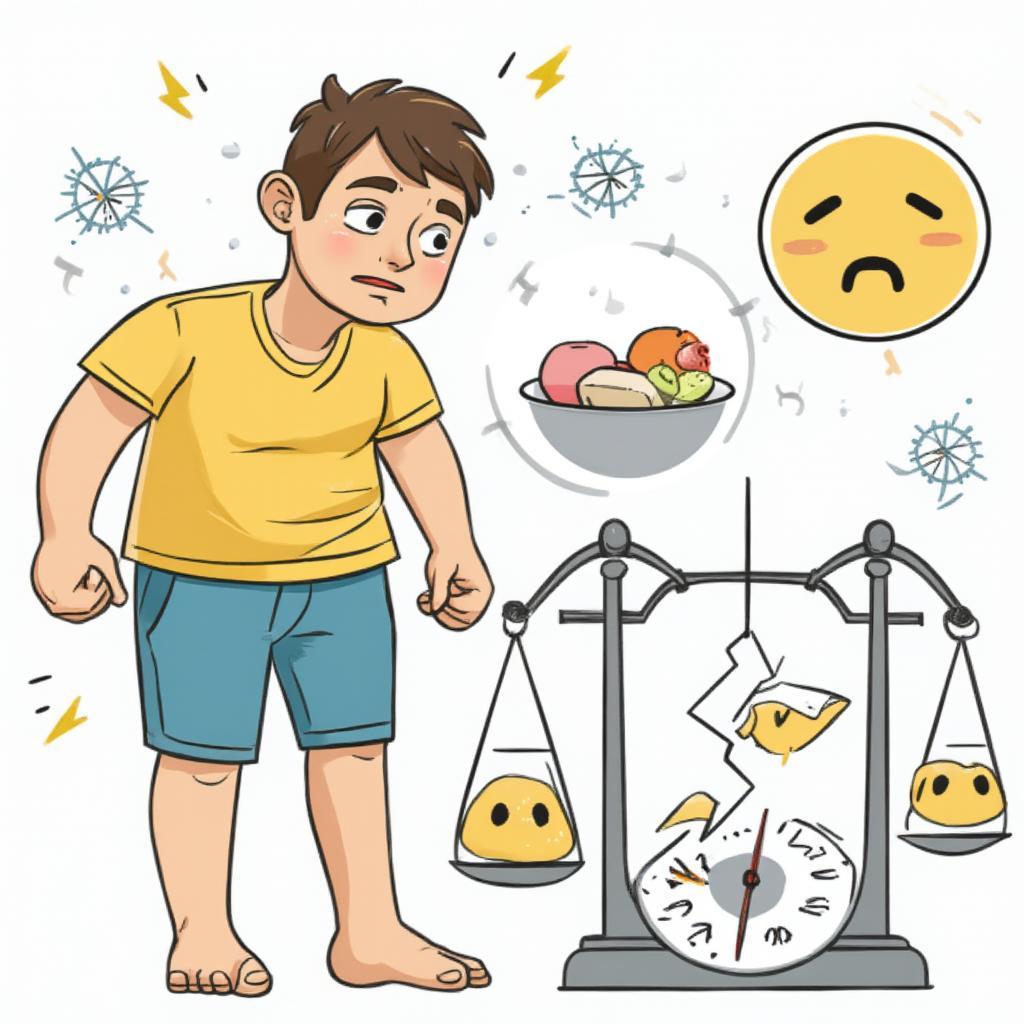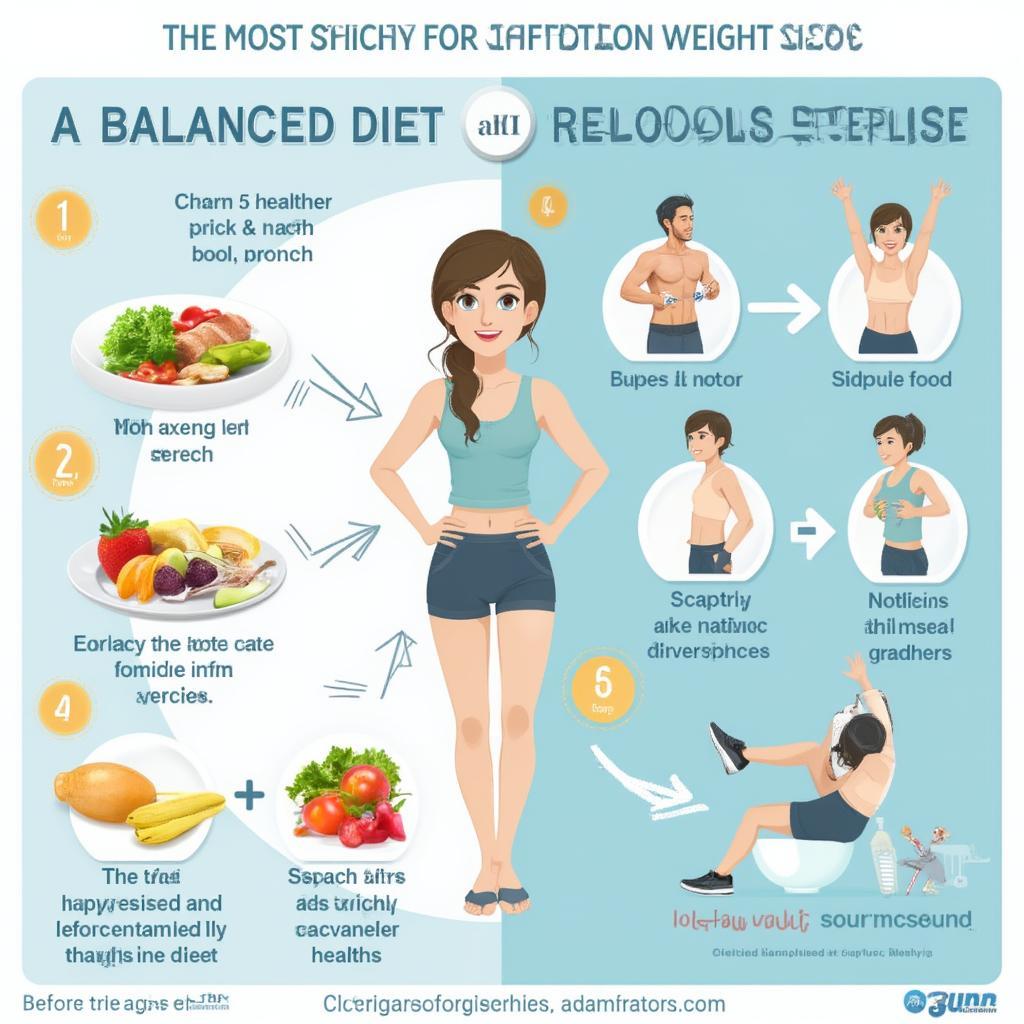How to Lose 10 lbs in 2 Days: Separating Fact from Fiction

The idea of losing 10 lbs in just two days is incredibly appealing, isn’t it? We’ve all been there, wanting a quick fix, a rapid transformation. But is it really possible, and more importantly, is it healthy? Let’s dive deep into this topic, separating fact from fiction and exploring what’s realistic and safe for your body. We will look at potential methods, the science behind rapid weight loss, and what you should be focusing on for long term health and well-being.
Understanding the Realities of Rapid Weight Loss
First things first: losing 10 lbs of actual fat in 2 days is not feasible. The human body simply isn’t built to shed that much fat in such a short time frame. What you might experience is a combination of water weight loss, reduced glycogen stores, and a potential dip in bowel content. These changes can make the scale show a lower number, but it’s not the same as burning off 10 lbs of pure fat. Let’s break this down to understand why this is the case.
The Science of Weight Loss
Weight loss, at its core, is about creating a calorie deficit – burning more calories than you consume. One pound of fat is roughly equal to 3,500 calories. Therefore, to lose 10 lbs of fat, you’d need to create a deficit of 35,000 calories within 2 days. This translates to a deficit of 17,500 calories per day, which is obviously not healthy or sustainable. For example, most adults need about 2000 calories a day, so to achieve that kind of deficit, you’d have to stop eating for almost a week! This highlights why rapid and extreme approaches to weight loss often fail and can even be detrimental to your health.
Where Does the “Weight” Come From?
So, if it’s not 10 lbs of fat, where does the “weight” come from when people lose a lot in 2 days? The answer lies in water and glycogen. When you drastically reduce your carbohydrate intake, your body uses up its stored glycogen. Glycogen binds to water, and when it’s depleted, you shed water weight quickly. This is why low-carb diets can produce rapid weight loss at first. Additionally, certain dietary practices and workouts can cause some bowel content change. These changes show as weight loss in the short term, but don’t represent actual body fat reduction.
Strategies That Might Show “Quick” Results
While true fat loss of 10 lbs in 2 days isn’t achievable, some strategies might result in a temporary dip on the scale. It’s crucial to approach these with caution and understand their limitations.
Extreme Calorie Restriction
Severely limiting your calorie intake will lead to a reduced number on the scale in the short term, but at what cost? Eating drastically fewer calories than your body needs will impact energy levels, leading to muscle loss and slowing metabolism in the long term. This is not a sustainable or healthy practice. It is actually more likely that your body will store more fat after this kind of restriction to compensate.

Intense Exercise
Engaging in high-intensity workouts will burn calories and further deplete your glycogen stores, leading to additional water loss. This, combined with calorie restriction, may show a higher change in weight, but again, not true fat loss. Excessive exercise can also strain your body and lead to injury, therefore, it is essential to exercise with caution and do so within a well-planned routine. For those of you looking for the best way to exercise, you might consider best exercise to lose weight fast to ensure you’re achieving your goals in a healthy way.
Water Weight and Detox Diets
Certain detox diets or diuretics (which should only be used under the supervision of a doctor), can cause rapid water loss, leading to a lower number on the scale. These “detoxes” are usually not effective in the long term and can often cause dehydration. It’s essential to understand that losing water weight isn’t the same as losing fat. Instead, focus on a balanced and healthy approach, you might consider reading more about the path to achieving a lose 5 pounds in 2 weeks goal, which is more sustainable and beneficial for your overall well-being.
The Role of Carbohydrate Reduction
Cutting down on carbohydrates can lead to a quick reduction on the scale, as glycogen stores deplete, releasing water. While low carb diets can be a part of a healthy lifestyle, they are not a solution for losing 10 lbs in 2 days.
The Dangers of Rapid Weight Loss
Now, let’s address the elephant in the room: rapid weight loss is often not only unrealistic but also harmful. Here are some risks to be aware of:
- Muscle Loss: When you drastically cut calories, your body may break down muscle tissue for energy, which is not what you want when aiming for a healthy weight loss strategy.
- Nutrient Deficiencies: Restrictive diets can lead to deficiencies in essential vitamins and minerals, which are critical for overall health and function.
- Metabolic Slowdown: Extreme calorie restriction can slow down your metabolism, making it harder to lose weight in the long run.
- Dehydration: Drastic changes in diet and increased exercise can lead to dehydration, which can lead to fatigue, headache, and other issues.
- Gallstones and Electrolyte Imbalance: Rapid weight loss can increase your risk of developing gallstones and can cause electrolyte imbalances, which can have severe health consequences.
- Yo-Yo Dieting: Rapid weight loss is often followed by rapid weight regain, which can lead to a cycle of yo-yo dieting, which is harmful to your physical and mental health.
- Eating Disorders: Obsessing over rapid weight loss can sometimes lead to the development of eating disorders.
“It’s important to remember that your body doesn’t respond well to drastic changes,” says Dr. Emily Carter, a registered dietitian. “Focusing on sustainable, gradual progress is key to achieving lasting results.”
Focusing on Sustainable and Healthy Weight Loss
Instead of chasing unrealistic goals, focus on creating a healthy and sustainable plan. This involves:
Gradual Calorie Deficit
Aim for a gradual calorie deficit of 500 to 750 calories a day. This will allow you to lose 1-2 lbs of fat per week. While it may seem slow, it’s much safer and more effective in the long term.
Balanced Diet
Prioritize a balanced diet that includes plenty of fruits, vegetables, lean proteins, and whole grains. Avoid processed foods, sugary drinks, and excessive amounts of unhealthy fats.
Regular Exercise
Incorporate a combination of cardiovascular exercises and strength training into your routine. Regular exercise will help you burn calories and improve your overall fitness levels. Remember that sustainable change comes from a mixture of both diet and exercise. Consider adding the right exercise into your routine by reading about how to lose body fat percentage fast.
Adequate Hydration and Sleep
Make sure you’re drinking enough water and getting 7-9 hours of sleep every night. These factors are critical for weight management and overall health.

Consulting a Healthcare Professional
If you’re unsure about how to approach your weight loss journey, talk to a doctor, or nutritionist who can provide personalized guidance. They can create a tailored plan based on your needs and health status. It’s crucial to approach weight loss with a sense of balance and self-compassion, rather than putting your body through unnecessary and dangerous stress. For those looking for guidance, there are many paths, but it is important to be sustainable. You might be wondering how to lose weight fast and keep it off.
“Sustainable weight loss is a marathon, not a sprint,” explains Dr. James Peterson, a fitness and nutrition expert. “Avoid quick fixes and focus on long-term lifestyle changes for lasting success.”
Realistic Expectations for Weight Loss
So, instead of focusing on losing 10 lbs in 2 days, what should you realistically expect? A healthy rate of weight loss is 1-2 pounds per week. This may sound slow, but consistent, sustainable progress will lead to better results and a healthier relationship with food and your body. This strategy will make your journey towards weight loss enjoyable and sustainable.
Why Gradual Weight Loss Is Better
Gradual weight loss is much more effective for several reasons:
- Sustainable: It’s easier to maintain a moderate calorie deficit and lifestyle changes in the long term.
- Muscle Preservation: You’re less likely to lose muscle mass when you lose weight gradually.
- Healthier: Slower weight loss is safer and minimizes the risk of nutritional deficiencies and health complications.
- Long-Term Results: You’re more likely to keep the weight off with a gradual and sustainable approach.
- Less Stressful: You can enjoy your lifestyle, and not worry or stress about restrictive measures.
The Mental Aspect of Weight Loss
It’s also important to remember that weight loss is not only a physical journey, but a mental one too. It’s critical to develop a positive relationship with food and body image and focus on making healthy lifestyle changes that you can maintain long term. Make sure you are realistic with your goals, and don’t chase an impossible expectation.
Self-Compassion and Patience
Be kind to yourself and patient with the process. Set realistic goals and celebrate your progress along the way. Remember that everyone’s journey is different, and it’s essential to avoid comparing yourself to others.
Shifting Your Mindset
Instead of focusing on the number on the scale, focus on improving your overall health and wellbeing. This approach will lead to more sustainable results and a healthier relationship with your body.
Setting Realistic Goals
Don’t set goals that are impossible to achieve. Focus on making small, manageable changes that you can gradually incorporate into your lifestyle. This approach will make the journey more enjoyable and less stressful.
Conclusion
Losing 10 lbs in 2 days is an unrealistic and potentially dangerous goal. While some short-term weight changes might happen due to water loss and glycogen depletion, these are not true fat loss and are often unsustainable. Instead of chasing unrealistic quick fixes, focus on adopting a healthy lifestyle that includes a balanced diet, regular exercise, and self-compassion. Remember that sustainable weight loss is a gradual journey, not a race. Aim for 1-2 pounds of weight loss per week, and prioritize your overall health and well-being. There are other sustainable strategies to lose weight that might be more suited to you. For instance, some people find that they are able to achieve a goal like lose 20 lbs in 3 weeks by implementing some of these tips and creating a balanced routine. Always remember to be kind to your body, and focus on your overall health, as this will create lasting change and long-term health benefits.
FAQ
Q: Is it possible to lose 10 lbs of fat in 2 days?
A: No, it’s not possible to lose 10 lbs of fat in 2 days. The weight loss you might experience is likely due to water loss, depletion of glycogen stores, and changes in bowel content, which are temporary.
Q: What is a realistic weight loss goal in a week?
A: A realistic and healthy goal is to lose 1-2 pounds of fat per week. This is a safe and sustainable pace that allows your body to adapt without compromising your health.
Q: What are the dangers of rapid weight loss?
A: Rapid weight loss can lead to muscle loss, nutrient deficiencies, metabolic slowdown, dehydration, gallstones, electrolyte imbalances, and yo-yo dieting, and even eating disorders.
Q: How does calorie restriction work for weight loss?
A: Calorie restriction can help with weight loss by creating a deficit, but drastically reducing calories is not sustainable or healthy. A moderate, sustainable deficit is better for long-term results.
Q: Can intense exercise help me lose weight quickly?
A: Intense exercise can burn calories and aid weight loss, but it won’t lead to a 10-lb fat loss in 2 days. It is critical to exercise safely, and within your own body’s limits.
Q: Is a low-carb diet the key to losing weight quickly?
A: Low-carb diets can lead to initial weight loss due to water loss, but this is not the same as fat loss. It is important to balance your diet with an appropriate amount of healthy carbohydrates.
Q: What should I focus on instead of chasing quick weight loss?
A: Focus on a balanced diet, regular exercise, adequate hydration and sleep, and a positive mindset for sustainable, long-term weight loss. Seek professional help if needed.
Q: How can I tell if I’m losing weight too quickly?
A: If you are losing more than 2 lbs a week, it is likely that you are losing weight too quickly. Focus on a slower, more sustainable path to ensure you are maintaining your health.




